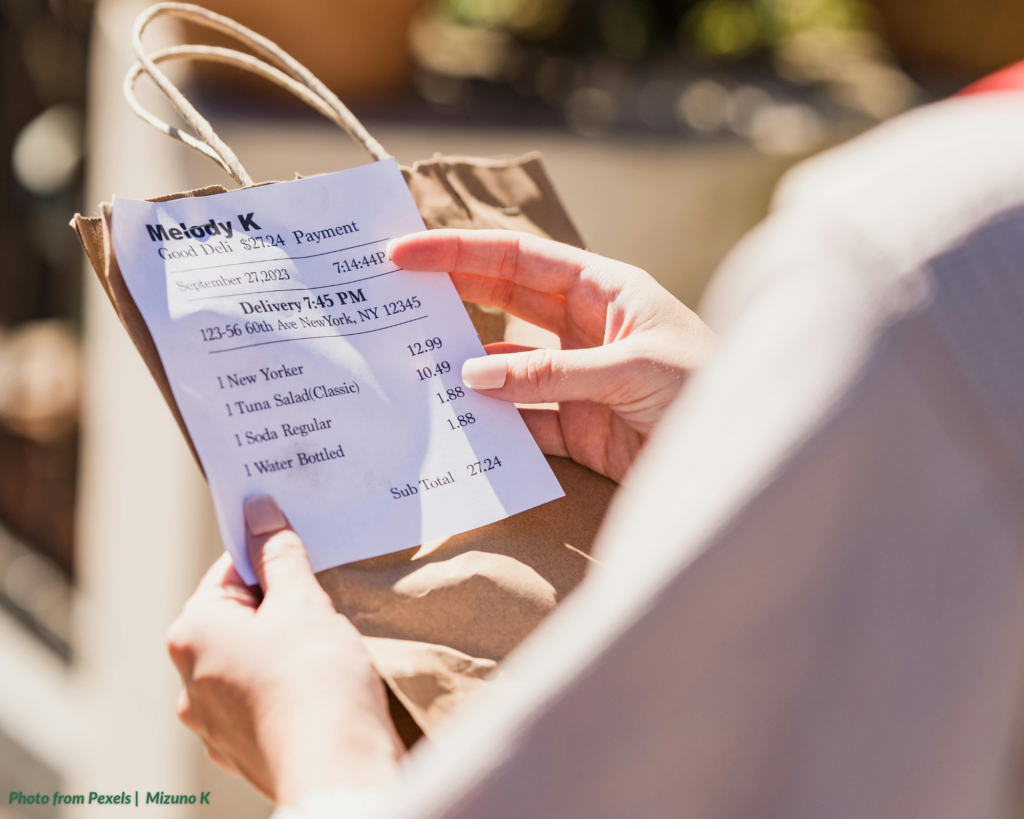
Photo from Pexels | Mizuno K
The following post does not create a lawyer-client relationship between Alburo Alburo and Associates Law Offices (or any of its lawyers) and the reader. It is still best for you to engage the services of a lawyer or you may directly contact and consult Alburo Alburo and Associates Law Offices to address your specific legal concerns, if there is any.
Also, the matters contained in the following were written in accordance with the law, rules, and jurisprudence prevailing at the time of writing and posting, and do not include any future developments on the subject matter under discussion.
AT A GLANCE:
On March 22, 2024, the Bureau of Internal Revenue (BIR) issued Revenue Regulations (RR) No. 7-2024, implementing the amendments on Registration Procedures and Invoicing Requirements found in the amended Tax Code, in relation to the Ease of Paying Taxes (EOPT) Act.
Among the notable provisions in RR No. 7-2024 is that a Value-Added Tax (“VAT”) Invoice shall be evidence of the sale of goods and/or properties and the sale of services and/or leasing of properties issued to customers in the ordinary course of trade or business – whether these be cash sales or on account (credit) or charge sales.
On March 22, 2024, the Bureau of Internal Revenue (BIR) issued Revenue Regulation (RR) No. 7-2024, implementing the amendments on Registration Procedures and Invoicing Requirements found in of Sections 244 and 245 of the Tax Code, in relation to the Ease of Paying Taxes (EOPT) Act.
Among the notable provisions in RR No. 7-2024 is that a Value-Added Tax (“VAT”) Invoice shall be evidence of the sale of goods and/or properties and the sale of services and/or leasing of properties issued to customers in the ordinary course of trade or business – whether these be cash sales or on account (credit) or charge sales. The VAT Invoice shall also be the basis of the output tax liability of the seller, and the input tax claim of the buyer.
RR No. 7-2024 likewise lists the information that must be contained in the VAT Invoice, including:
1. A statement that the seller is a VAT-registered person, followed by the seller’s Tax Identification Number (TIN) and Branch Code
E.g., VAT Reg TIN 123-456-789-00000
2. The total amount which the purchaser is obligated to pay to the seller, with the indication that said amount includes VAT, and
-
- The VAT is shown as a separate item;
- The term “VAT-Exempt Sale” is written, if the sale is subject to zero percent (0%) VAT;
- The invoice clearly indicates the breakdown of the sale price between taxable, exempt and zero-rated components;
- The calculation of the VAT on each portion of the sale shall be shown on the invoice.
Note: The seller may issue separate invoices for the taxable, exempt and zero-rated components of the sale.
3. The date of transaction, quantity, unit cost, and description of the goods, properties, or services;
4. The registered name, address, and TIN number of the purchaser, customer or client, if the sales amount to one thousand pesos (PHP1,000.00) or more, and the purchaser is a VAT-registered person.
RELATED ARTICLES:
Value-Added Tax (VAT) on Digital Services Law
VAT Invoice under the Ease of Paying Taxes (EOPT) Act and its implementing rules and regulations
Click here to subscribe to our newsletter
Alburo Alburo and Associates Law Offices specializes in business law and labor law consulting. For inquiries regarding legal services, you may reach us at info@alburolaw.com, or dial us at (02)7745-4391/ 0917-5772207/ 09778050020.
All rights reserved.

